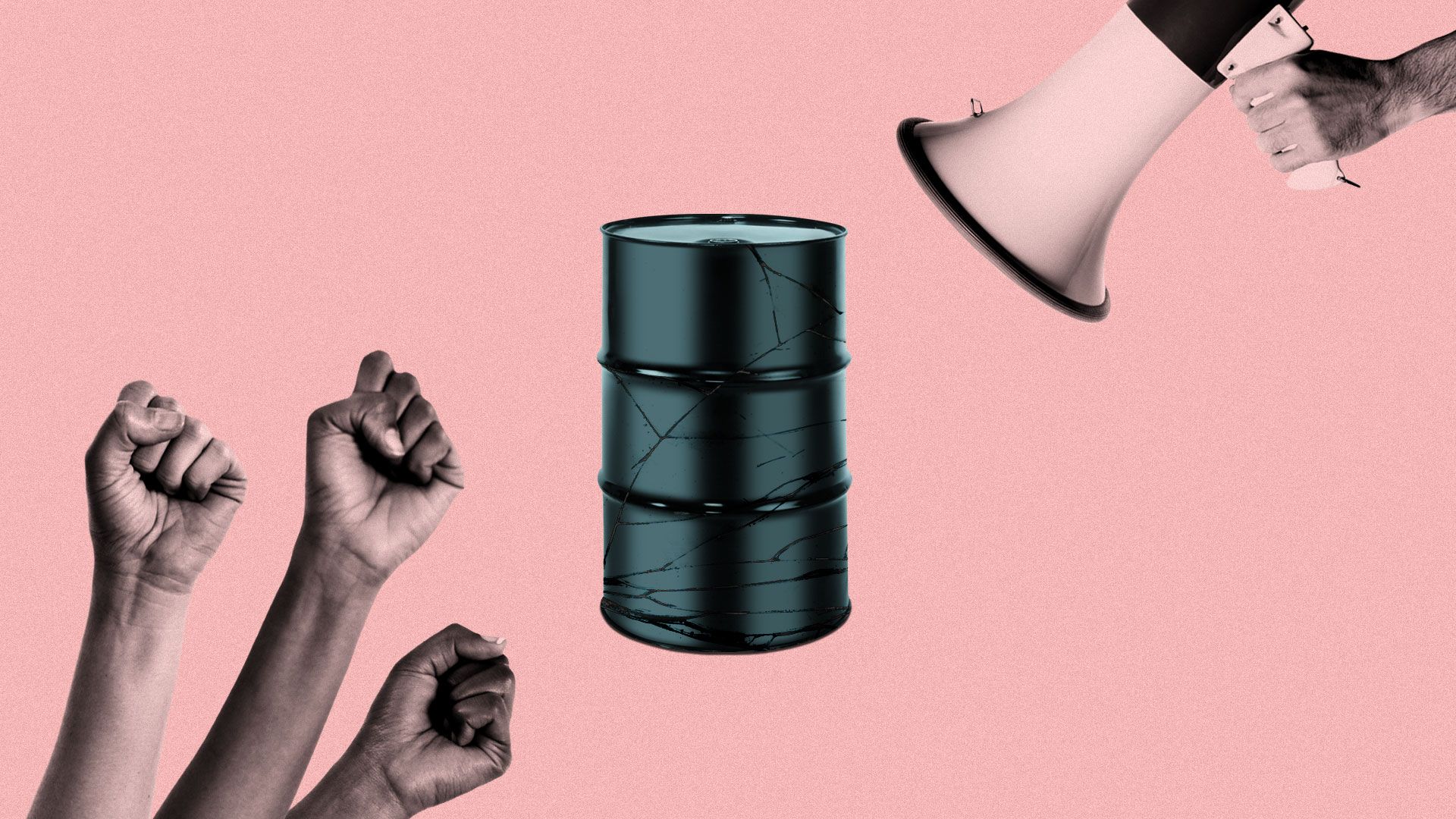Coronavirus could fuel Middle East unrest
Add Axios as your preferred source to
see more of our stories on Google.

Illustration: Eniola Odetunde/Axios
Coronavirus isn’t just wreaking havoc on our health, livelihoods and economies, it’s now poised to feed Middle East unrest and, possibly, terrorism.
The big picture: The oil-rich region is being ravaged by the novel coronavirus and low oil prices that have dropped even more due to the pandemic cutting off global demand and a related price war between Saudi Arabia and Russia.
How it works: Nations in the Middle East depend heavily on oil revenue for a large portion of their economies, so persistently low oil prices sap government money for a vast array of public services, including health care and education.
- The less money they have to provide services for their populations, the greater the risk of unrest that could, experts say, eventually lead to more terrorism, both in the region and abroad.
What they’re saying: Experts generally agree the one-two punch of COVID-19 itself and resulting lower oil prices will significantly exacerbate problems in the region, particularly Iran and Iraq, both which are already dealing with a host of other problems.
- “What happens with failed states, is you have young, unemployed men with nothing to do and access to extreme ideology,” said Helima Croft, global head of commodity strategy at RBC Capital Markets. Referring to the unrest that ultimately helped set the stage for the 9/11 attacks, Croft added: “Problems in the Middle East often don’t remain in the boundaries of these countries.”
By the numbers: If current oil-market conditions continue — oil prices hovering at or below $30 a barrel — some oil-rich nations could see their oil and gas income fall by 50% to 85% this year, the International Energy Agency and OPEC said this week in a joint statement.
- That would be the lowest levels in more than two decades, according to a recent analysis by IEA, an intergovernmental research group.
- The countries in IEA's analysis include (but not limited to) Qatar, Kuwait, Iraq, Nigeria and Venezuela. Those are members of OPEC, the Organization of Petroleum-Exporting Countries, except for Qatar, which recently left.
“The lower the prices go, the greater chance of Middle East upheaval,” said Peter Atwater, a behavioral economist and adjunct lecturer at William & Mary.
Yes, but: Civil unrest has declined in key oil-rich Middle East nations since 2011 protests, largely because some governments have become more repressive since then, said Niamh McBurney, who leads the Middle East and North African analysis for global risk consultancy Verisk Maplecrof.
What we’re watching: How low oil prices go and how long they stay there.
"If [low prices are] short-lived, most governments in the region will be able to hold off on cuts to social welfare systems and essential services,” McBurney said by email. “If it persists through to the end of the year, countries like Egypt, Tunisia, Oman, Iraq, Kuwait will have difficult decisions to make.”
Go deeper: OPEC-Russia oil price war escalates as Saudi Aramco announces supply increase
